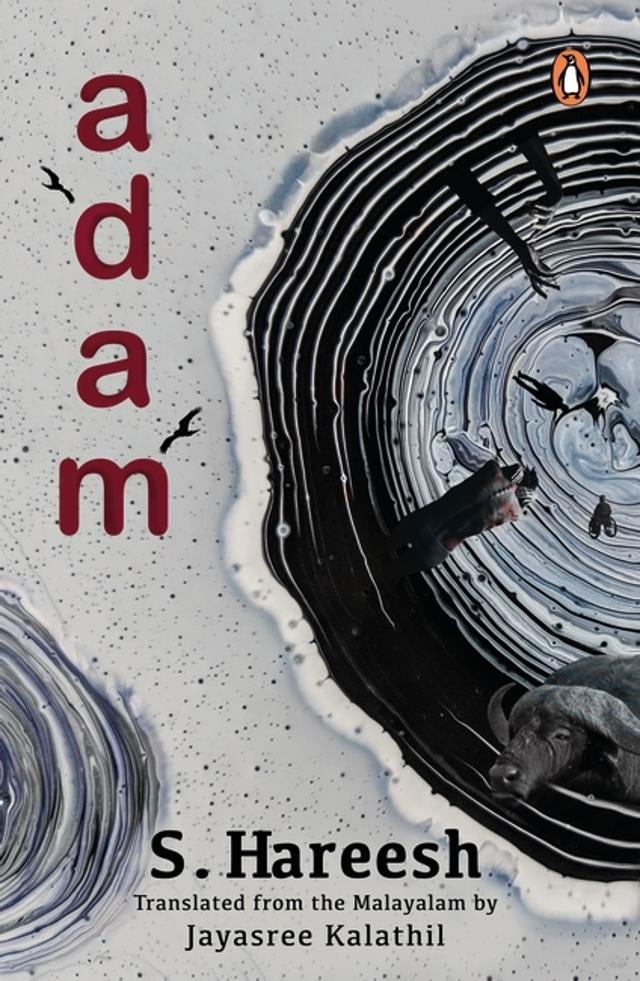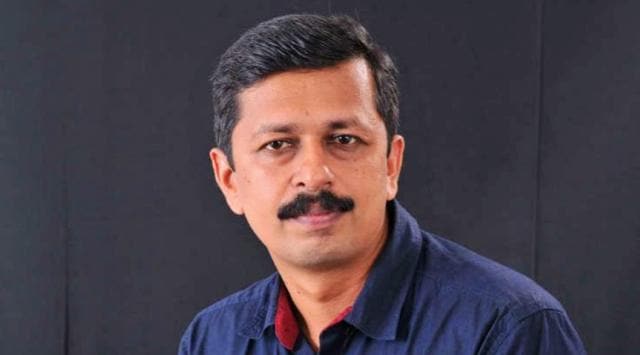MEDIA
Review: Adam by S Hareesh
www.hindustantimes.com | June 4, 2022
While reading S Hareesh’s collection of short stories, Adam, translated from the Malayalam by Jayasree Kalathil, I repeatedly thought how deficient our literary culture would be minus translations. Not that I didn’t know it before but reading Adam is a reaffirmation. The imagination that Hareesh brings to his renditions, the scope of his characters, their quirks and world views akin to the construction of a mini universe of oddballs is all unthinkable in Indian writing in English or the small cocoon that most of such writing emanates from and constantly regurgitates. It is when writers like Hareesh are translated into English that the Indian English idiom acquires a new life, a new voice, a new character and a new world view altogether.

Having said that, I also wondered if Hareesh’s fiction could emerge from anywhere else in the country? After all, his stories are rooted in the soil of his native Kerala. To read Hareesh is to attempt a parallel reading of the state and its complex sociocultural dynamics. I am not suggesting a mere sociological analysis of his writing because formal and narrative experiments are key to his oeuvre. The magical realist setting or ending of several of the stories in this volume are deeply entrenched in the cultural ecosystem of the state. Would you count Aravindan and Vijayan as Hareesh’s cultural ancestors? I would, though not in an imitative way. In his writing, I can sense the flora and fauna of the state, its dense forests and rivers. Perhaps the magical and the real constantly intersect in such settings.
For instance, a story called Murder at the Culvert chronicles the life of Maadan Thambi, a thug transformed into a law-abiding citizen after his self-proclaimed divine encounter with Christ. Now how is that even possible? Maadan Thambi displays a picture where he is seen posing with a Christ-like figure. His audience cannot suppress their laughter upon identifying the late Malayalam filmmaker John Abraham in the photo mistakenly believed to be Christ by Maadan Thambi owing to physical and sartorial similarities. This is an ingenious situation and a great intersection of comic-infused magic with the real. Isn’t it incredulous that Maadan Thambi actually believed in the reality of such an occurrence? But then there are many like Thambi for whom this is completely plausible.
Adam and other stories were written before Meesha, which, when translated into English as Moustache, won Hareesh critical acclaim and instant recognition in the English-speaking world. It is a fascinating novel rich in folklore and mythology. Awards often decide the fate of the non-English Indian writer in the Anglophone space. Regardless, I am happy that more of Hareesh’s work will now be translated and remain in circulation.

While reading the stories, I was also thinking about the role and acumen of the translator, Jayasree Kalathil, and the difficulty of her endeavour. Not only is she tasked with translating a language but also the author’s imagination. And it is the latter which is more critical owing to its very local character. How does a local imagination or imagination about the local hold in a language foreign to the sensibilities of the story’s characters whose lives transpire in their native Malayalam? Kalathil has done a remarkable job in addressing this dynamic in her translation – to reimagine the local in a foreign language.
Several of the stories in the collection feature people with aberrant behaviour or what largely would qualify as aberrant by societal standards. Perhaps it is Hareesh’s interest in the aberrant that also adds a magical-realist dimension to the characters and their actions. A realist approach alone can often be a shortcoming to examine their complexities or motivations in such a situation. In Lord of the Hunt, Dileepan can go to any extent to consume wild meat and also offer it to others as a marker of his masculine pride. In Kavyamela, Vasuvannan cons a blind man and escapes with his girlfriend. There are a series of such events which might beget the question – but why? Hareesh doesn’t answer. Perhaps he too is looking for the answers. These doubts are his own too. Nevertheless, the encounters also leave you thinking about the world contained in his fiction. And that is where the success of his endeavour lies – by entering the mind of the reader, building a home there and energising our imagination and curiosity.
-Kunal Ray, Assistant Professor – English Literature
(Source:- https://www.hindustantimes.com/books/a-mini-universe-of-oddballs-101654284927470.html )

